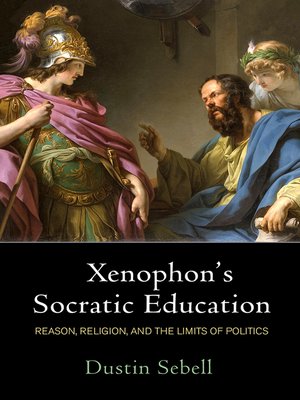
Sign up to save your library
With an OverDrive account, you can save your favorite libraries for at-a-glance information about availability. Find out more about OverDrive accounts.
Find this title in Libby, the library reading app by OverDrive.



Search for a digital library with this title
Title found at these libraries:
| Loading... |
It is well known that Socrates was executed by the city of Athens for not believing in the gods and for corrupting the youth. Despite this, it is not widely known what he really thought, or taught the youth to think, about philosophy, the gods, and political affairs. Of the few authors we rely on for firsthand knowledge of Socrates—Aristophanes, Xenophon, Plato, and Aristotle—only Xenophon, the least read of the four, lays out the whole Socratic education in systematic order.
In Xenophon's Socratic Education, through a careful reading of Book IV of Xenophon's Memorabilia, Dustin Sebell shows how Socrates ascended, with his students in tow, from opinions about morality or politics and religion to knowledge of such things. Besides revealing what it was that Socrates really thought—about everything from self-knowledge to happiness, natural theology to natural law, and rhetoric to dialectic—Sebell demonstrates how Socrates taught promising youths, like Xenophon or Plato, only indirectly: by jokingly teaching unpromising youths in their presence. Sebell ultimately shows how Socrates, the founder of moral and political philosophy, sought and found an answer to the all-important question: should we take our bearings in life from human reason, or revealed religion?






